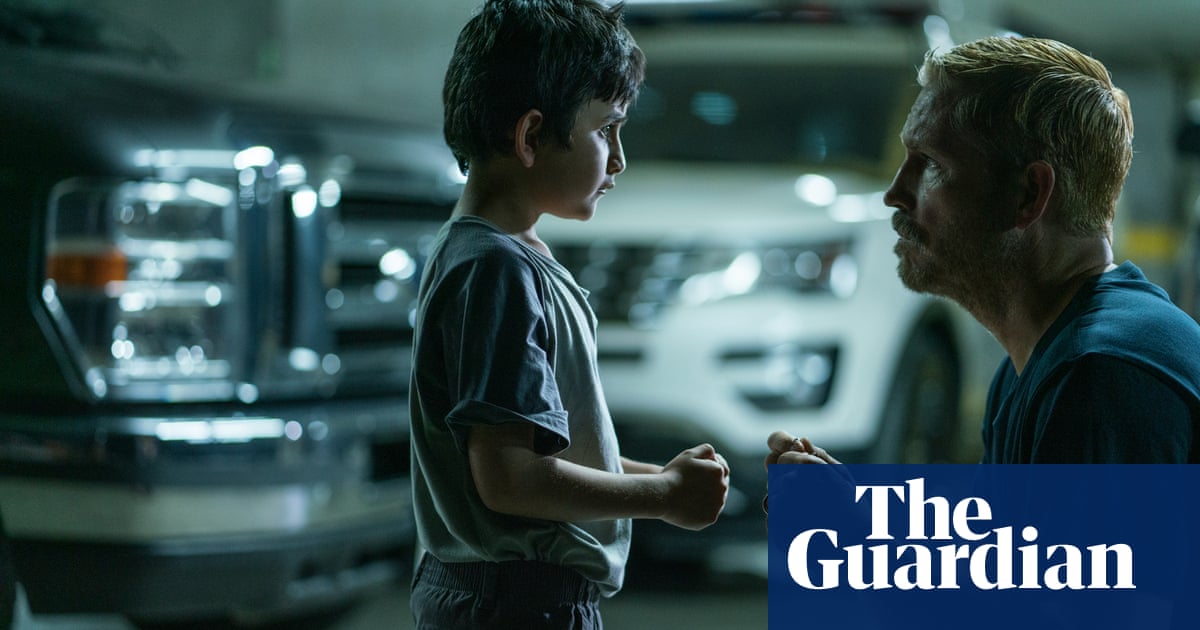Sound of Freedom director denies film linked to QAnon theory

The director of a surprise US box office hit that has been labelled Trump-friendly and “adjacent” to dangerous conspiracy theories has called the reception the film has received “heartbreaking”.
Donald Trump last month held a screening of Sound of Freedom, which tells the story of US federal agent Tim Ballard going on a rescue mission to Mexico to free victims of child trafficking.
Alejandro Monteverde, the film’s director, has denied that the film has ties to QAnon, which is a baseless internet theory whose followers believe a cabal of Satan-worshipping politicians and celebrities engage in paedophilia and human trafficking, while harvesting the blood of abused children. Work on the film began in 2015, before the QAnon conspiracy came to light.
At a Gala screening in London on Thursday, Monteverde said: “Don’t be mean to me, man. Most of the media are so mean to me.” He called the headlines the film has received “heartbreaking”.
When asked about the film’s salience among the US rightwing, he said: “Anything that goes political divides. When a director makes a movie there is no contract on what people can say after. What people say after the movie, the director has minus 100% control.”
He was quick to distance the film from any links to QAnon, saying “it’s a fact that this film is not based on the QAnon conspiracy”.
However, lead actor Jim Caviezel has repeated several of the conspiracy’s talking points on conservative talkshows and at QAnon-organised events, including that he believes in “adrenochroming” – the term for the falsehood that traffickers torture children and drain their blood to harvest an elixir of youth.
On Caviezel’s controversial comments about QAnon, Monteverde said: “I hire people to work on my movie. What they do after is their choice. Do I agree with everything that people do after? Absolutely not.”
The film was shot in 2018 and was set to be distributed by 20th Century Fox – but when the studios were acquired by Disney in 2019, the film’s release was put on hold. This year, the films rights were acquired by the US-based, Christian-leaning distributor Angel Studios.
In a “special message” added in by Angel Studios and delivered by Caviezel that plays over the end credits, he calls the film the 21st-century version of the 1852 anti-slavery novel Uncle Tom’s Cabin and calls on audience members to take out their phones to scan a QR code on screen which links to a webpage where you can “pay for someone else’s ticket who might not otherwise see it”. One ticket costs £11. There is also an option to buy 100 tickets for £1,100.
The film has carried over its “pay it forward” model to the UK. As the film opens this week, tickets that have been “paid forward” by others can be claimed for free online. On the webpage, there is a prompt to buy tickets for other to “bring this film to the world to spread awareness about child trafficking”.
Despite near sold-out screenings in the US, the Guardian reported last month that there were more vacant seats than tickets sold inside cinemas.
At the domestic box office in the US, the film has earned more than Hollywood blockbusters Indiana Jones and the Dial of Destiny and Mission: Impossible – Dead Reckoning Part One.
Monteverde said UK viewers who may be wary of the film given its history so far in the US should “go and see the film and build your own opinion”.
He added: “I don’t want people to like my movie because they have to. It hurts me when people don’t like my film based on other people’s opinions.”
This article has been archived for your research. The original version from The Guardian can be found here.


